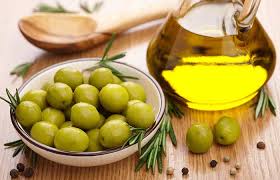Olive oil is a staple of many Mediterranean style diets and its consumption is gaining popularity in America as being better than butter, thus the researchers wanted to investigate the potential impacts of the shift on the American population.
“A recent meta-analysis found an inverse association between olive oil consumption and risk of stroke, but there were inconsistencies between the studies that assessed CHD as the endpoint,” wrote lead author Marta Guasch-Ferré, PhD, Brigham and Women’s Hospital and Harvard Medical School in Boston, and colleagues. “Of note, all of the included studies were conducted in Mediterranean countries.”
Data was analyzed from over 61,000 women who participated in the Nurses’ Health Study as well as over 31,000 men who participated in the Health Professionals Follow Up Study; none of the participants had a history of cancer, heart disease or stroke and their diets were assessed once every four years.
After a follow up of 24 years in total there were more than 9,000 cases of cardiovascular disease over 6,000 cases of CHD and over 3,500 cases of stroke, and after making adjustments those with higher olive oil intake of over ½ tablespoon per day were found to have their risk of CVD decreased by 14% and risk of CHD decreased by 18%; however, when it came to total or ischemic stroke “no significant associations were observed.”
“The present work generates new evidence suggesting that replacement of more saturated fats, such as butter and margarine, with healthy plant-based fats, such as olive oil, is beneficial for the primary prevention of CVD,” the authors wrote. “Of note, during the earlier part of the follow-up, many margarines contained substantial amounts of trans fatty acids and the results may not apply to current margarines.”




